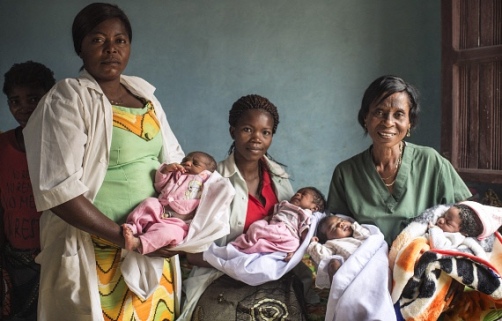By: Rasha Dewedar
Send to a friend
The details you provide on this page will not be used to send unsolicited email, and will not be sold to a 3rd party. See privacy policy.
[CAIRO] Many women across the world spend too little time in hospital after childbirth to receive sufficient care, says an analysis of data from 92 nations, including 55 low- and middle-income countries.
The average length of stay varies widely from country to country due to economic and cultural reasons, says the study, published in PLOS Medicine on 8 March. After single vaginal births, the average hospital stay ranges from half a day in Egypt, through 0.8 days in Pakistan and 2 days in Haiti, to 6.2 days in Ukraine.
The percentage of stays that were ‘too short’ — that is, under 24 hours for vaginal deliveries and under 72 hours for caesarean-section deliveries — ranged from 0.2 to 83 per cent and from one to 75 per cent, respectively, the study says.

“We are actually interested in quality of care in this period, and length of stay is a way to start to understand this,” says the study’s lead author Oona Campbell, an epidemiologist at the London School of Hygiene & Tropical Medicine in the United Kingdom.
“We are actually interested in quality of care in this period, and length of stay is a way to start to understand this.”
Oona Campbell, London School of Hygiene & Tropical Medicine
Staying longer in hospital allows medical teams to monitor the condition of the mother and the baby, and to educate mothers about breastfeeding, the paper says. “We need to ensure that facilities have skilled birth attendants and effective elements of care, but also that women stay long enough to benefit from these.”
In Egypt, for example, people from poorer backgrounds are often eager to leave hospital early, says Hossam El Shenoufy, a gynaecologist at Cairo’s University Kasr Al-Ainy public hospital. “That’s for economic as well as cultural reasons”, for example because family members want to surround the mother in the days after birth, but hospital policies often restrict this.
But “people are now more educated and they would follow doctors’ instructions to stay longer rather than adhering to cultural norms”, says Dalia Moussa, from the Family Empowerment Programme at Egypt’s National Population Council, a government body. She adds that Egyptian public health facilities usually provide guidance for mothers and vaccination for babies after leaving hospital.
However, the quality of healthcare in Egypt varies between districts, and some hospitals discharge patients as early as possible to reduce costs.
The study relied on data from governments, the international Demographic and Health Surveys, as well as from UNICEF (the UN Children’s Fund) and the US Centers for Disease Control and Prevention.
While Campbell says the data is robust, El Shenoufy says the study uses “insufficient input data especially in low-income countries, assuming the same economic level across the whole society in each country”.References
Oona M. R. Campbell and others Length of stay after childbirth in 92 countries and associated factors in 30 low- and middle-income countries: compilation of reported data and a cross-sectional analysis from nationally representative surveys (PLOS Medicine, 8 March 2016)














